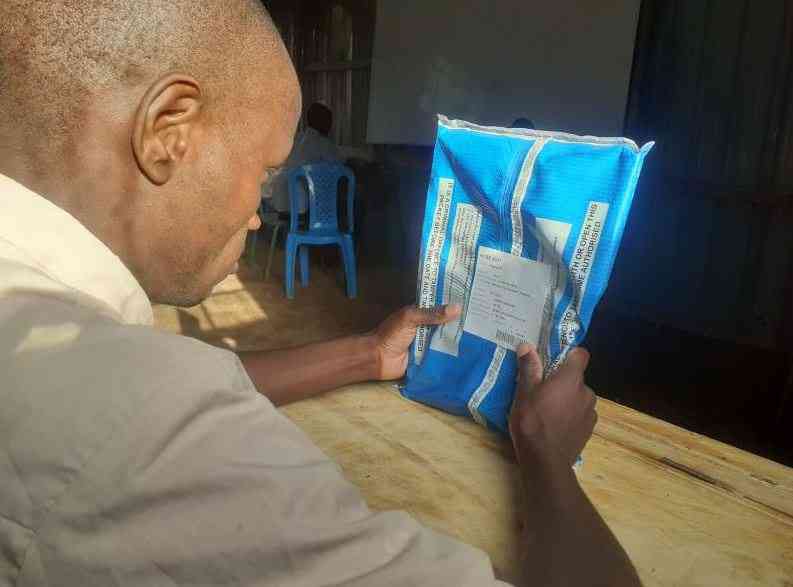The week’s surprise was that Ambassador Amina Mohamed was shocked by the number of deliveries by pregnant teenagers sitting KCPE examination.
I listened with horror as Tanzania’s President John Magufuli scoffed at the idea of allowing such children to continue with school. In his mind, pregnancy was a girl’s ultimate sin, from which there was only damnation. Interestingly, such moral police never propose similar penalties for the impregnators.
Back to the Kenyan crisis. Anyone who has interacted with teenagers will know that the level of sexual activity among this portion of the population is a national crisis.
A recent study by an international research group, PMA2020, on adolescents and young adults' health in Africa, reported that in Kenya’s rural areas, girls, nay children, on average have their first sexual experience at age 16.7.
In the urban areas, the average commencement age, while low, is comparatively higher, at an average age of 18.4 years. At least the girls are technically adults. At one level, these numbers define a worrying decay in our moral standards. It is no longer news when a teenager gets pregnant or is engaged in sexual behaviour.
In my seven years in primary school, I remember only one girl got pregnant, and it was the talk of the village for weeks. What worries most is that every pregnancy is indicative of unprotected sex. In an age where Aids and all manner of sexually transmitted diseases are common, one fears for the future of a generation that wantonly engages in risky sexual behaviour.
On the use of contraceptives, the aforementioned study found that girls in the rural areas start using contraceptives at an average age of 22.7 years. It would therefore mean that for about six years, girls are engaging in sexual activity that risks pregnancy. At the tender age of 16, especially in many rural areas where people are predominantly poor, pregnancy is a sentence into poverty for the mother and child. When did the rain start beating us? Though I am no expert in these matters, I am convinced that part of the answer lies in the changes to the social arena, particularly in the last two decades.
Our morals as adults are generally wobbling and the children are watching and copying. The social ties that held us together have increasingly loosened. The privatisation of parental responsibility means that parental obligation is solely on individual parents. The church, neighbour, the teacher and the estate that herebefore were joint parents, exercising a level of oversight, have exited this mandate.
They have left the job of parenting to parents, many of whom have little clue as to what is happening in their children’s lives. Add to that mix the advent of liberal media, available at the touch of a button, which exposes children to glorification of sex at an increasingly early age. With only their peers to elucidate on this confusing matter, the easing into early sexual behavior should not surprise us.
What then must we do? The beginning point is for us parents to wake up and smell the coffee. This is not about other children; that cherubic pigtailed teenager having dinner with you is engaging in illicit sex. They will get sick, pregnant or worse. You must own the problem.
We must then open avenues of communication that enable us to hear where our children are. This is a community effort and we must work with teachers, aunts, significant others where we cannot get through. Part of this process will have to involve early honest conversations on safe sex. Most parents will detest this but if you walk up Museum Hill or other “hengs” that teens frequent on a Saturday after midnight, you will rethink your approach.
But like all other crises, until we accept that we are in the middle of one, we will keep postponing action, believing that like the biblical Passover, it will pass our gate. This is the ultimate irresponsibility. We owe our children better.
- The writer is an advocate of the High Court of Kenya
 The Standard Group Plc is a
multi-media organization with investments in media platforms spanning newspaper
print operations, television, radio broadcasting, digital and online services. The
Standard Group is recognized as a leading multi-media house in Kenya with a key
influence in matters of national and international interest.
The Standard Group Plc is a
multi-media organization with investments in media platforms spanning newspaper
print operations, television, radio broadcasting, digital and online services. The
Standard Group is recognized as a leading multi-media house in Kenya with a key
influence in matters of national and international interest.
 The Standard Group Plc is a
multi-media organization with investments in media platforms spanning newspaper
print operations, television, radio broadcasting, digital and online services. The
Standard Group is recognized as a leading multi-media house in Kenya with a key
influence in matters of national and international interest.
The Standard Group Plc is a
multi-media organization with investments in media platforms spanning newspaper
print operations, television, radio broadcasting, digital and online services. The
Standard Group is recognized as a leading multi-media house in Kenya with a key
influence in matters of national and international interest.









